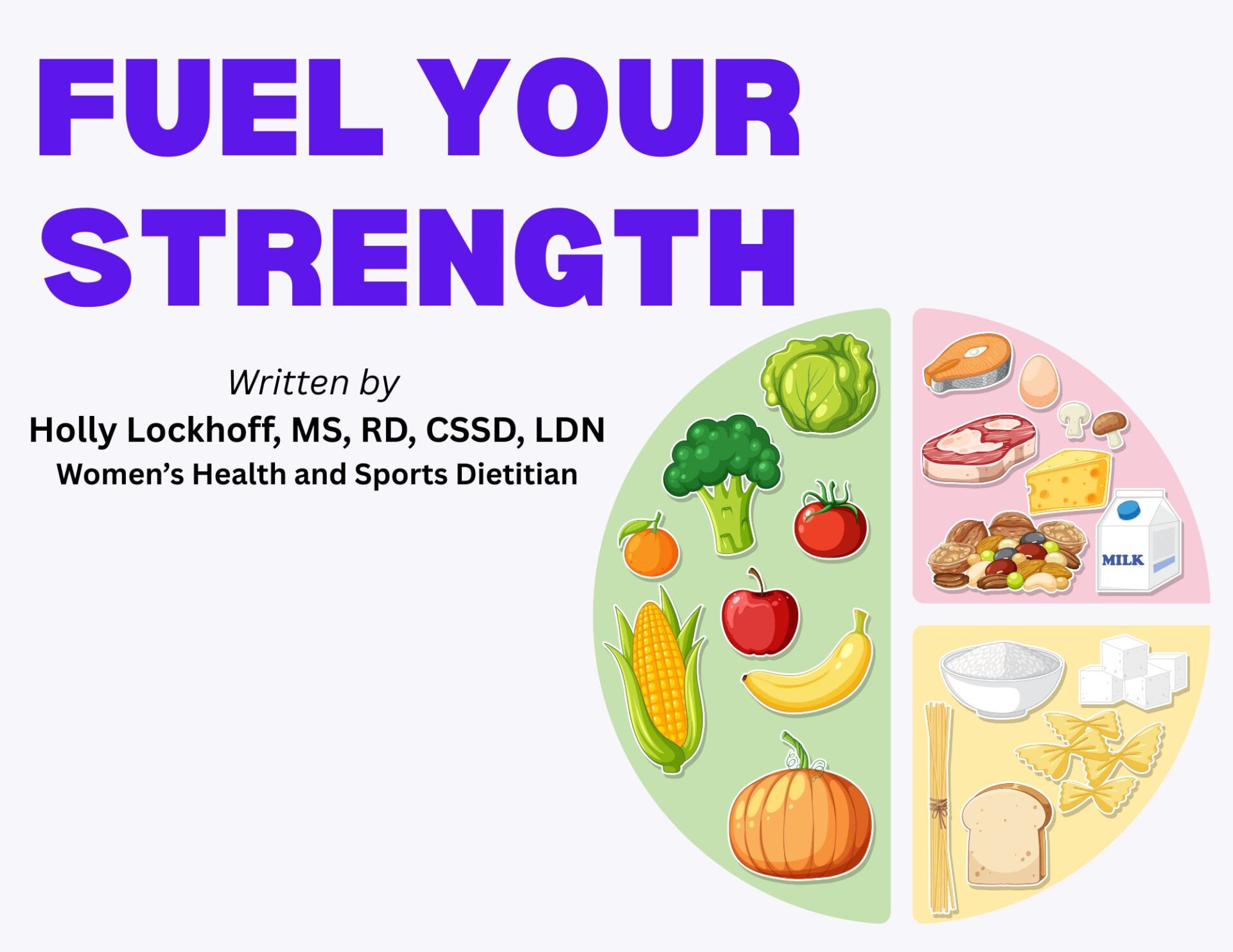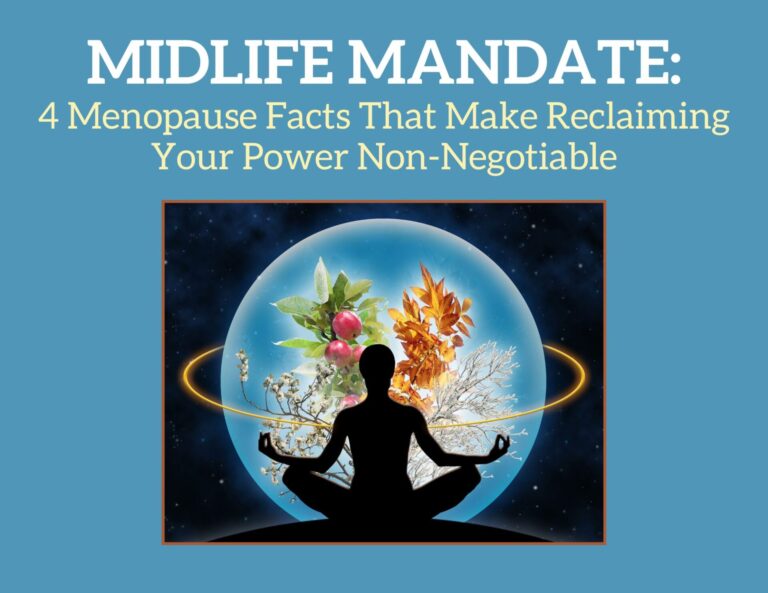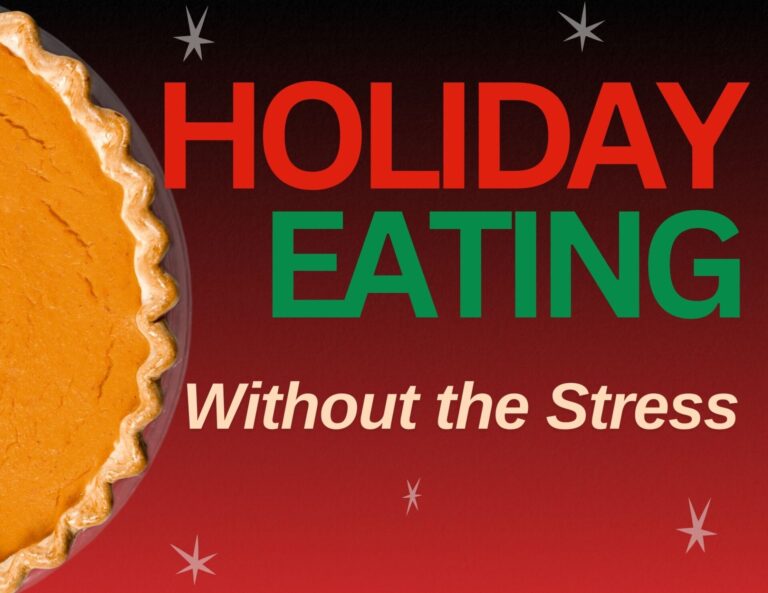This post may contain affiliate links. Read the full disclosure here.
Fueling Strength: Smart Nutrition for Women in Perimenopause and Menopause
By Holly Lockhoff, MS, RD, CSSD, LDN – Women’s Health and Sports Dietitian
The transition into perimenopause and menopause is often accompanied by a mix of physical and emotional changes. Many women notice shifts in energy, changes in body composition, disrupted sleep, and increased concerns about bone and heart health. But there’s one powerful tool that can help you feel stronger, more resilient, and more in control: nutrition.
As a women’s health and board-certified sports dietitian, I work with women every day who are navigating this season of life. And here’s what I want you to know—midlife is not a time to shrink or restrict. It’s a time to fuel. Let’s explore the key ways to support strength and vitality through strategic, science-backed nutrition.
1. Prioritize Protein for Muscle & Metabolism 💪
Muscle loss (sarcopenia) tends to accelerate in perimenopause due to declining estrogen levels, which also impact metabolic rate. To support lean muscle and strength:
- Aim for 25–30 grams of high-quality protein per meal
- Consume a protein-rich breakfast (think: Greek yogurt, eggs, tofu scramble, or a
smoothie with protein powder) - Space protein evenly across meals to optimize muscle protein synthesis.
Lean muscle mass not only helps you feel strong, but it also supports better balance, joint
health, and metabolic efficiency.
2. Support Bone Health with Calcium, Vitamin D & Magnesium 🦴
Estrogen plays a key role in maintaining bone density. As levels drop, the risk of osteoporosis rises. You can help protect your bones by focusing on:
- Calcium: Found in leafy greens, yogurt, cheese, cow and fortified plant milks and tofu
- Vitamin D: Enhances calcium absorption – get levels checked regularly; supplement if
needed - Magnesium: Important for calcium absorption and muscle relaxation — found in nuts, seeds, whole grains, and legumes
Weight-bearing exercise paired with a bone-supportive diet is a powerhouse combination.
3. Balance Blood Sugar to Tame Energy Swings and Cravings ⚖️
Hormonal shifts can make blood sugar more volatile, leading to fatigue, irritability, and cravings. Stabilizing your blood sugar can make a huge difference in how you feel.
- Eat regular meals and snacks—don’t skip!
- Combine protein + fiber + healthy fat at meals
- Limit ultra-processed carbs and sugary snacks, which can lead to crashes
Balancing your plate = balancing your energy.
4. Fuel for Exercise—Not Just Recovery ⛽️
Many women become more intentional about exercise in midlife, and that’s fantastic. But if you’re not eating enough to support your workouts, especially strength training, progress can stall.
- Pre-workout: A light snack with carbs and a little protein (like a banana with peanut
butter) - Post-workout: A recovery meal or snack within 30–60 minutes (such as eggs and toast, or a smoothie with protein and fruit)
- Don’t fear carbohydrates—your muscles need them to rebuild and perform
Think of food as part of your training plan, not just a reward after.
5. Support Gut Health and Inflammation 💓
Bloating, digestive issues, and inflammation are common during this stage. A well-supported gut can improve digestion, hormone balance, immune function, and mood.
- Eat a variety of fiber-rich plant foods (aim for 25+ grams/day)
- Include fermented foods like yogurt, kefir, kimchi, or sauerkraut
- Drink plenty of water and limit inflammatory foods like excessive alcohol and added
sugars
A diverse, colorful diet is your gut’s best friend.
6. Mind Your Micronutrients 🧘♀️
Key vitamins and minerals can become more important in midlife:
- Iron: Needs typically decrease post-menopause, but watch for fatigue and test levels if
concerned - B vitamins: Support energy, brain function, and mood—especially B6, B12, and folate
- Omega-3s: Anti-inflammatory and heart-protective—found in fatty fish, flaxseed, and
walnuts
If your diet is limited or symptoms persist, a high-quality multivitamin or targeted supplement may help—talk to your provider or dietitian.
💡 Final Thoughts: Nourish, Don’t Restrict
This phase of life is often viewed through a lens of loss—of estrogen, of energy, of the body you used to know. But nutrition is one area where you have power. When you eat to nourish rather than restrict, you can feel stronger, steadier, and more connected to your body.
If you’re unsure where to start or feel overwhelmed by conflicting advice, you’re not alone. Working with a dietitian who specializes in women’s health can help you create a sustainable plan that supports your goals—whether that’s building muscle, managing symptoms, or just feeling good in your skin again.
Because midlife isn’t a decline—it’s a new chapter. And you deserve to thrive through it
Holly Lockhoff is a board-certified sports dietitian and founder of Time To Thrive Nutrition in Phoenixville, PA. She specializes in women’s health and sports nutrition. Holly holds advanced degrees in nutrition, leads a team of dietitians, and is passionate about simplifying nutrition for her clients. Want support on your journey? Learn more about personalized nutrition for perimenopause and menopause at Time To Thrive Nutrition.







